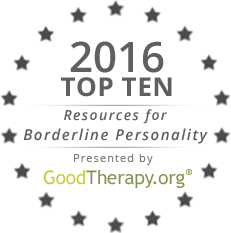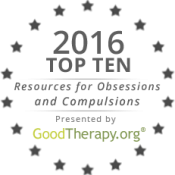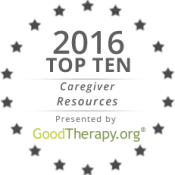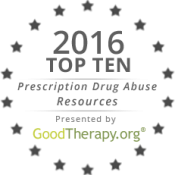 In recent years, greater awareness of mental health concerns and their prevalence has led to greater efforts to decrease stigma surrounding these issues and discrimination against those who experience them. Though this work is far from complete, some measure of success has already been achieved. Many of those who experience mental health concerns or emotional issues may feel more able to talk about these issues without facing judgment, compared to in the past. A report from the Substance Abuse and Mental Health Services Administration (SAMHSA) shows that in 2015, the number of people receiving mental health treatment had increased by 7%. This indicates that people may be more comfortable seeking treatment now than in years past.
In recent years, greater awareness of mental health concerns and their prevalence has led to greater efforts to decrease stigma surrounding these issues and discrimination against those who experience them. Though this work is far from complete, some measure of success has already been achieved. Many of those who experience mental health concerns or emotional issues may feel more able to talk about these issues without facing judgment, compared to in the past. A report from the Substance Abuse and Mental Health Services Administration (SAMHSA) shows that in 2015, the number of people receiving mental health treatment had increased by 7%. This indicates that people may be more comfortable seeking treatment now than in years past.
The experience of some mental health concerns may be more normalized in today’s society, but people coping with certain mental health and emotional issues may still face significant stigma. Borderline personality (BPD), described in the Diagnostic and Statistical Manual as a pattern of impulsive behavior and unstable interpersonal relationships, self-image, and affects, is one such condition.
BPD, further characterized by fear of rejection and subsequent efforts to avoid abandonment in addition to self-harming behaviors, dissociation, intense emotional affect, and instability of mood, has long been considered by many to be a condition that is difficult to treat. Stigma toward those with the condition also exists among mental health care providers, some of whom may find individuals in treatment resistant or difficult and distance themselves, which is likely to diminish the efficacy of therapy.
This condition is estimated to appear in about 1.6% of American adults, but the actual figure may be as high as 6%, as the condition is often missed or misdiagnosed, particularly in men, although recent research suggests this may be changing. Individuals who have BPD may believe they are bad, worthless, or unworthy of the love and/or companionship they desire. Shame and self-stigma are common.
Therapy can help individuals learn emotional regulation skills and address actions that affect others in order to avoid those actions in the future, but waiting lists for dialectical behavior therapy, the recommended treatment for BPD, are often long, and other therapies may be less effective, at best.
A number of factors also combine to potentially make treatment difficult. BPD is frequently misdiagnosed when help is sought, and co-occuring conditions—bipolar, posttraumatic stress, and eating disorders, to name a few—are often present and must also be recognized and treated. The emotional distress and turmoil experienced by those who have borderline personality can have a significant impact on overall well-being, and many may come to doubt that recovery, or even improvement, is possible. Online resources discussing borderline personality often paint individuals who have this condition as cruel, vindictive, manipulative, or in other generalizing terms, without recognizing them as people who are experiencing pain.
While it is generally agreed that most individuals should be held responsible for their actions, a person is not responsible for the condition they experience. Stigmatizing borderline personality, or any other mental health condition, is only likely to make it more difficult for the people who experience such concerns to receive compassionate care. At GoodTherapy.org, we believe everyone can be helped and that all people should be treated with compassion and respect, regardless of their mental health or emotional state. In accordance with this belief, we have compiled a list of the 10 best borderline personality resources in 2016. These websites were chosen not only because they provide quality information and resources to individuals with BPD (and to their families and partners), but because they offer compassion and hope.
- Borderline Personality Disorder Resource Center: This center is an affiliate of the NewYork-Presbyterian Hospital. Its clinical director, Otto Kernberg, is considered to be a world expert on the condition and operates the organization with a mission of promoting BPD education and helping those affected access treatment and support resources. The website offers visitors information about the condition, video clips from experts and individuals with the condition, and links to resources for people who have BPD, their families, and professionals. Local individuals can also contact the BPDRC for help and services.
- National Education Alliance for Borderline Personality Disorder: Originally developed to provide resources and support to the family members of individuals diagnosed with BPD, this organization also works to raise awareness of BPD, reduce stigma, and promote greater quality of life in those with the condition. Site visitors—people in treatment, their families, and professionals—can access information, links to resources, a media library and audio presentations, and the latest news about BPD. The organization has also developed a 12-week program, Family Connections™, which helps family members and partners of people with BPD obtain skills, education, and support. Registration information can be obtained from the website.
- Brandon Marshall’s Project Borderline: This nonprofit organization, developed by NFL player Brandon Marshall after he was diagnosed with borderline personality, operates with the goal of raising awareness, fighting stigma, and advocating for legislation to support people with BPD. The site is still fairly small but offers visitors a collection of resources, information about BPD and treatment, and messages of hope.
- Healing From BPD: This personal blog, maintained by Debbie Corsco, details her journey toward recovery from BPD. Corsco, who has authored two books and co-facilitates online classes in DBT, no longer meets diagnostic criteria for BPD. By providing information, blog entries, testimonials, and resource links on her website, she works to help other individuals diagnosed with the condition thrive as they work through their own unique challenges.
- Personality Disorder Awareness Network: This nonprofit organization strives for increased awareness of all personality disorders. Focusing their awareness and prevention work primarily toward children who are at risk, PDAN works to reduce the impact these conditions have on the family members of those who have them and prevent the development of these conditions. Visitors to the website can learn more about these conditions and their risk factors, discover if someone they know is at risk, learn about prevention and support programs, read blog posts on related topics, and access webinars.
- Borderline Bravery: This site, maintained by a group of people from all over the world who have BPD, works to address stigmatization by offering support, advice, and information to people who submit questions and thoughts. Topics discussed include relationships, self-care, and advice and validation to those who think they could have BPD. The mods do not offer medical advice or post content that could be triggering to others, such as descriptions of self-harm or suicidal ideation, but offers several crisis and support resources to those who may need them.
- Life in a Bind – BPD and Me: The personal blog of a working mother diagnosed with BPD and anxiety as well as panic, Life in a Bind details the daily process, including struggles as well as gains, of living and coping with these conditions. Blog posts are archived by category, such as “Aspects of BPD,” “Therapy,” and “Poems, Quotes, and Music.” Visitors can also access information about BPD and links to outside sources.
- Emotions Matter: This nonprofit organization is dedicated to improving BPD awareness and advocating for better care. The founders, who had family members coping with the challenges of BPD, recognized the need for better social connections among these individuals and began offering monthly meetings where individuals could connect and discuss goals. Emotions Matter was incorporated in 2015. Site visitors can learn about BPD and treatment, access resources, learn ways to work toward greater awareness, and read personal stories from individuals with BPD. Residents of New York can also learn ways to get involved through events, rallies, and task forces.
- Make BPD Stigma-Free!: This blog details the personal journey of a woman living with BPD who is committed to fighting stigma and helping others do the same. In addition to blog entries, the site features a collection of skills, tools, and other articles; links to external resources; and reviews of books written for people with BPD. Visitors can also view her creative work, which she uses as an outlet to cope with BPD symptoms.
- BPDFamily: This free online support group, founded in 1998, has been recognized by both medical and mental health professionals. Certified as an ethical and reliable health care resource, this site is also the most visited BPD website in the world. This site is primarily intended to offer support to the family members and intimate partners of those who have BPD, but it takes a compassionate and sensitive view toward the people who live with the condition. Visitors can learn more about BPD and its affects on family and relationships, treatment and care options, access resources about relationships by type (parent, child, partner, and so on), obtain tools and exercises, and participate in live discussions.
References:
- Aviram, R. B., Brodsky, B. S., Stanley, B. (2006). Borderline personality disorder, stigma, and treatment implications. Harvard Review of Psychiatry, 14(5). 249-56. Retrieved from https://www.ncbi.nlm.nih.gov/pubmed/16990170
- Borderline personality disorder. (n.d.). Retrieved from https://www.nami.org/Learn-More/Mental-Health-Conditions/Borderline-Personality-Disorder
- Collins, S. P. K. (2015, January 28). More Americans are receiving mental health treatment. ThinkProgress. Retrieved from https://thinkprogress.org/more-americans-are-receiving-mental-health-treatment-f182248b4ba6#.sykigdlja
- Diagnostic and statistical manual of mental disorders: DSM-5. (5th ed.). (2013). Washington, D.C.: American Psychiatric Association.
- Rüsch, N., Hölzer, A., Hermann, C., Schramm, E., Jacob, G.A., Bohus. M. … Corrigan, P.W. (2006). Self-stigma in women with borderline personality disorder and women with social phobia. The Journal of Nervous and Mental Disease (194) 10. 766-73. Retrieved from https://www.ncbi.nlm.nih.gov/pubmed/17041289
© Copyright 2016 GoodTherapy.org. All rights reserved.

 Best of 2016: GoodTherapy.org's Top 10 Resources for Obsessions and Compulsions
Best of 2016: GoodTherapy.org's Top 10 Resources for Obsessions and Compulsions Best of 2016: GoodTherapy.org's Top 10 Resources for Caregiver Issues
Best of 2016: GoodTherapy.org's Top 10 Resources for Caregiver Issues Best of 2016: GoodTherapy.org's Top 10 Resources for Prescription Drug Abuse
Best of 2016: GoodTherapy.org's Top 10 Resources for Prescription Drug Abuse